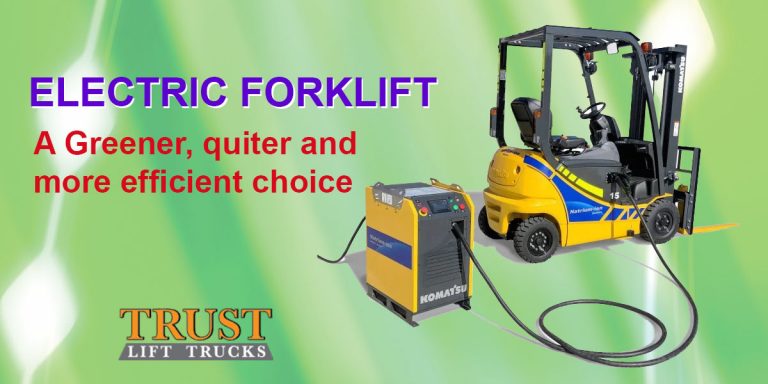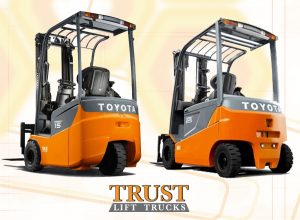Electric Forklifts: A Greener, Quieter, and More Efficient Choice

Electric forklifts have emerged as a compelling alternative to traditional diesel-powered models, offering a range of benefits that cater to both environmental concerns and operational efficiency. As businesses increasingly seek sustainable and cost-effective solutions, the appeal of electric forklifts continues to grow. They also have different features comparing propane forklifts.
Environmental Impact
One of the most significant advantages of these forklifts is their reduced environmental footprint. Unlike diesel-powered models, which emit harmful pollutants into the air, electric forklifts operate on clean electricity. This eliminates emissions of greenhouse gases such as carbon dioxide, nitrogen oxides, and particulate matter, making them a more sustainable choice for businesses. Additionally, electric forklifts produce significantly less noise pollution than their diesel counterparts, creating a healthier and more pleasant working environment for employees.
Operational Efficiency
Electric forklifts offer several advantages in terms of operational efficiency. They typically require less maintenance than diesel-powered models, as they have fewer moving parts. This translates to reduced downtime and lower maintenance costs. Furthermore, they often have superior acceleration and torque, enabling them to perform tasks more efficiently and productively.

Cost Savings
While the initial purchase price of an electric forklift may be higher than that of a diesel model, the long-term cost savings can be substantial. The reduced maintenance costs, energy efficiency, and potential government incentives can offset the higher upfront investment. Additionally, electric forklifts can help businesses reduce their energy consumption, leading to lower utility bills.
Battery Technology and Charging Infrastructure
The performance and practicality of electric forklifts are heavily influenced by battery technology and charging infrastructure. Advances in battery technology have resulted in longer operating times and faster charging capabilities. Lithium-ion batteries, in particular, have gained popularity due to their high energy density and rapid charging times.
However, the availability and accessibility of charging infrastructure remain a consideration for businesses. Adequate charging facilities are essential to ensure uninterrupted operations. Fortunately, the growing popularity of electric vehicles is driving the expansion of charging infrastructure, making it easier for businesses to adopt electric forklifts.
Challenges and Considerations
Despite their numerous benefits, they do present some challenges. The initial investment can be higher than that of diesel models, and the charging time may be a factor in certain applications. Additionally, the availability of suitable charging infrastructure can vary depending on the location.
To overcome these challenges, businesses should carefully evaluate their specific needs and consider factors such as operating hours, workload, and available charging facilities. Consulting with experts in the field can also help identify the most suitable electric forklift model and charging solution.
Conclusion
In conclusion, electric forklifts offer a greener, quieter, and more efficient alternative to traditional diesel-powered models. Their reduced environmental impact, improved operational efficiency, and potential cost savings make them an attractive choice for businesses seeking sustainable and cost-effective solutions. As forklift battery technology and charging infrastructure continue to advance, electric forklifts are poised to play an increasingly important role in the future of material handling.. Please be reminded that Trust Lift Trucks knowledgeable staffs are ready to assist you in selecting the right forklift for your specific applications. We are just a call away from you in Toronto and GTA to provide you forklift repair and maintenance.
